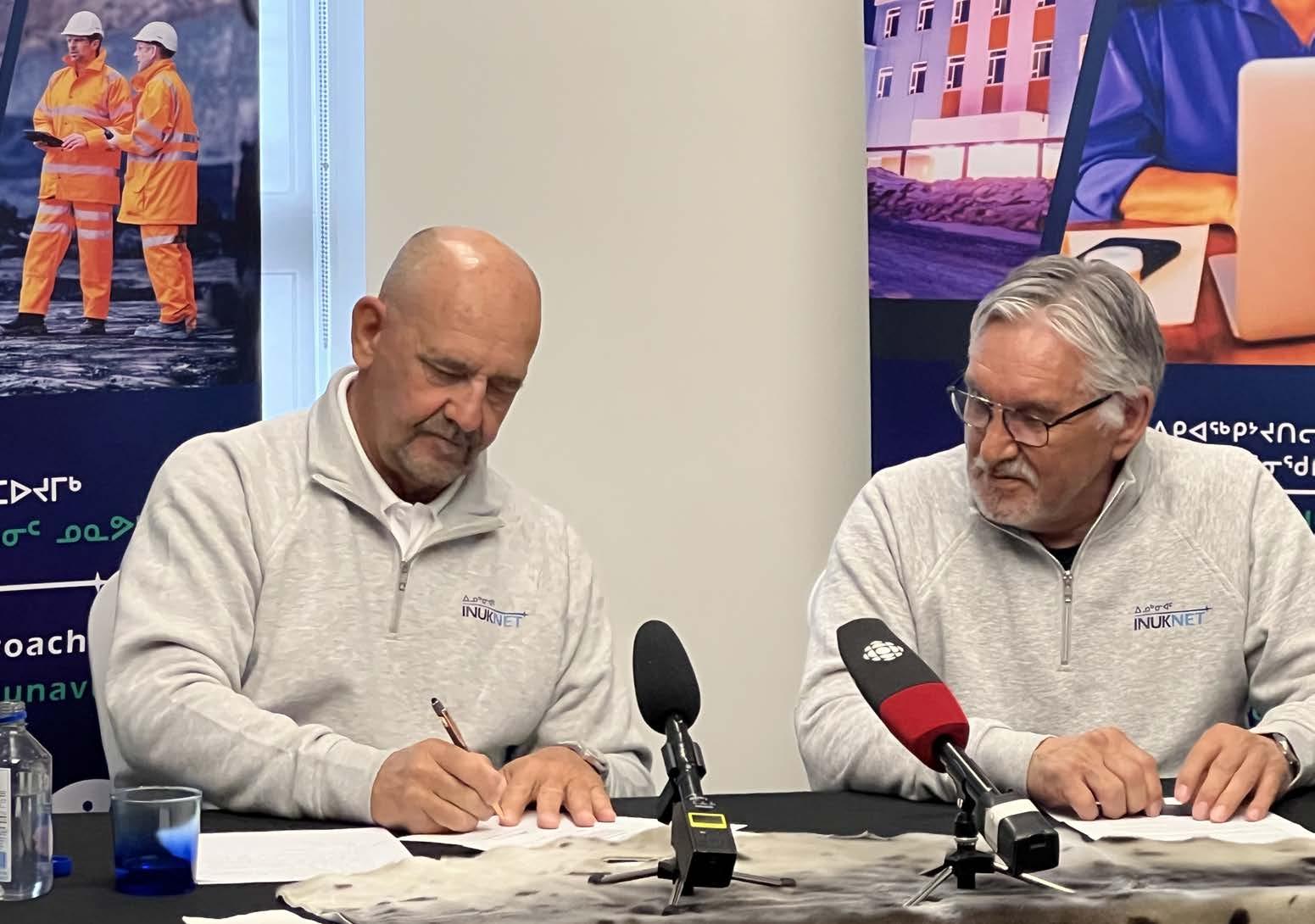
2 minute read
Opportunities NORTH COMMUNICATIONS Competition intensifies to bring high-speed internet to Nunavut Northwestel acknowledges low-earth satellite encroachment on customer base
By Derek Neary Northern
Nunavut’s quest for fibre optic internet has intensified, and while there are promising signs, there are also setbacks.
In late May, Premier P.J. Akeeagok vented his frustration over a lack of investment from the federal budget toward the Kivalliq Hydro-Fibre Link, which would bring high-speed internet and 150 megawatts of hydro-electric energy to the Kivalliq from Manitoba.
Earlier, at the Kivalliq Inuit Association’s meeting in Coral Harbour in February, the board passed a motion to prioritize the Indigenous Community Infrastructure Fund with support from Nunavut Tunngavik Inc. The fund supports regional infrastructure projects, including the Kivalliq Hydro-Fibre Link, which carried an estimated cost of $1.6 billion in 2020. But the project is billed as adding $3.2 billion to Canada’s gross domestic product during construction and $8 billion in revenues over five decades.
The Government of Canada did offer some financial backing in November 2022 when Northern Affairs Minister Dan Vandal came to Rankin Inlet to announce a $7 million investment to help advance the project. The government had previously committed $4.6 million for technical and feasibility studies.
Undersea and from space
The Government of Nunavut’s work toward bringing an undersea fibre optic telecommunications line to the territory continues with $14.1 million set aside for 2023-24.
Private interests covet the same objective. In late March, CanArctic Inuit Networks, which is proposing a marine fibre-optic line known as SednaLink from Labrador to Iqaluit, announced a memorandum of understanding with Quintillion, an Alaska-based fibre network operator. The project is expected to get underway in 2024.
Then in late April, the Qikiqtaaluk Corporation’s Panarctic Communications signed a deal with Galaxy Broadband Communications to form InukNet Communications Inc. The new company aims to offer telecommunications service in all 25 Nunavut communities by the end of 2023, as well as some locations in the Northwest Territories and the Nunavik region of Quebec in 2024. Using low-Earth orbit satellite technology, InukNet promises “the fastest available internet in the North” without fees for data overages.
Meanwhile, more Northerners have been signing up for Elon Musk’s Starlink over the past several months and posting online about their experiences with the service, some positive, some less so.
Northwestel’s position
The North’s entrenched telecommunications company, Northwestel, which is owned by Bell Canada, acknowledges growing competition in Bell’s 2022 annual report.
“The launch by Canadian and international competitors of low-earth orbit (LEO) satellites to provide connectivity, primarily in rural areas and the North, intensifies competition, which could adversely affect our network deployment strategy in such areas and negatively impact demand for our connectivity services,” the report states. “The ability of our subsidiary Northwestel Inc. (Northwestel), operating in Canada’s North, to respond to the competitive threat from these providers is further hampered by CRTC (Canadian Radio-television and Telecommunications Commission) retail internet regulations.”
In June 2022, the CRTC began the second phase of a review of Northwestel’s regulatory framework as well as the state of telecommunications services in Canada’s North.
“This proceeding may result in modifications to the current regulatory framework for Northwestel, including with respect to issues such as rates, wholesale access and subsidies,” Bell’s annual report reads. “Modifications to the current regulatory framework may result in additional subsidies and rate flexibility for Northwestel, which would encourage investment, or they may result in rate restrictions or additional wholesale obligations, which would undermine incentives for investment in the North. At this time, it is unclear what impact, if any, the results of the proceeding could have on our business and financial results.”
Northwestel, which has more than 500 employees, serves 96 communities in Nunavut, the Northwest Territories, Yukon, northern B.C. and High Level, Alta.










